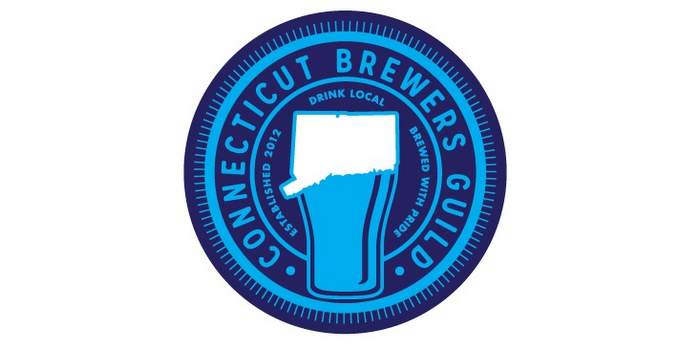The Connecticut Brewers Guild’s Executive Director Phil Pappas joined brewers from across the state to testify at the state capitol in support of, and to provide suggestions on, pro-consumer, pro-business legislation in front of the General Assembly’s General Law Committee last week. Pappas provided public comment on several bills, including S.B. 647 (An Act Streamlining the Liquor Control Act), H.B. 7183 (An Act Concerning Liquor Control Wholesaler Permits), and H.B. 7184 (An Act Concerning the Liquor Control Act).
The main point of interest here for the guild is increasing direct-to-consumer sales limits for off-premise consumption and an exemption for craft breweries from paying an excise tax for on-premise consumption sales. Here are some highlights of Pappas’ testimony.
Connecticut is home to 85 taprooms producing over 166,000 bbls of beer. In comparison nationwide, Connecticut breweries rank 29th in total number of breweries, 26th in breweries per capita (per 100,000 21+ adults), 29th in beer production, 28th in economic impact and 27th in the excise tax rate, but they rank at the bottom of the list for direct to consumer sales.
Our CT breweries lose sales, and the state of CT lose taxes, every single day due to this low limit because we are forced to tell our customers they legally can’t buy more, and collectively lose revenue to out-of-state breweries every week. Our neighboring New England states including NY, NJ, MA, VT, ME, and NH do not have any limits, or much higher limits, on direct to consumer sales, so it’s time we make changes in order to attempt to compete with these states. The added benefits of increasing direct-to-consumer sales limits will only continue to add to the massive economic impact that our industry has on our state, allow our breweries to reinvest in our businesses, create more jobs, increase our total production, and simply sell more of our product.
Pappas also argues that the current exemption for Connecticut craft breweries from paying excise tax for on-premise consumption sales is an integral part of its growth. In December 2017, Congress passed legislation that included a two-year provision of the Craft Beverage Modernization and Tax Reform Act, which lowered the federal excise tax for breweries by half. Through a survey that the BA conducted to find out how the breweries used their FET savings, they found that:
- 73 percent of breweries increased their economic development by purchasing new equipment, upgraded their tasting room and breweries, and/or moved to upgraded buildings
- 54 percent of breweries hired new employees at an average rate of 2.7 people per brewery
- 40 percent of breweries increased their employees benefits by raising pay, offering or expanding their insurance and retirement benefits
- 86 percent of breweries responded that they would be more likely to make capital investments and hire new people if the current Federal Excise Tax rate was made permanent
As our brewing industry strives to remain competitive in this ever-growing market, it’s necessary to modernize our states alcohol laws. Our breweries are eager and excited to work with our wholesalers, distributors, restaurants and bars, and package stores within our three-tiered system and we greatly appreciate our partnerships with them.
Another item the guild supports is the restructuring of the on-premise liquor permits, specifically the manufacturing for beer and brewpub license.
The CT Brewers Guild supports changing all our breweries permits to fall under the manufacturing for beer and brewpub license. We strongly believe and advocate that the language in the permit remain the same as it is written today, specifically allowing the manufacture, storage, and bottling of beer, the sale of beer for on-premise consumption, and the retail sale of alcoholic liquor to be consumed on the premises with or without the sale of food. We agree that the annual fee for a manufacturer permit for beer and brewpub shall be one thousand six hundred dollars. The CT Brewers Guild supports the ideas in H.B. 7184, and through our discussions over the past few weeks, to allow all manufacturers in the state – breweries, wineries, cideries, and distilleries, to sell each other’s products. This will allow all manufacturers to showcase and support one another, provide our customers with options, and assist with business growth within our state. We strongly believe and advocate that the breweries under the manufacturer for beer and brewpub permit be allowed to continue selling out-of-state products.





Leave a Reply
You must be logged in to post a comment.